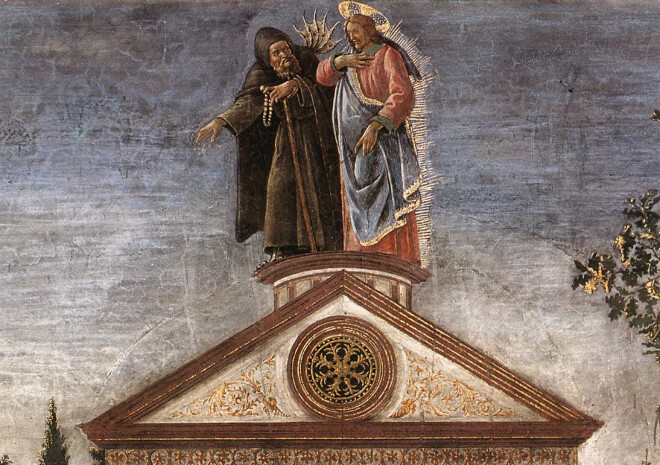Luke 4:1-13

What an amazing beginning to the ministry of Jesus. This passage recounts for us the baptism of Jesus and the beginning of his ministry. Luke has set the stage for us. He tells of the birth of Jesus; the boy Jesus in the Temple; John the Baptist prepares the way for Jesus; and then the genealogy of Jesus, all the way through Adam. Luke wants us to see Jesus at the center of all things; from the announcement of his birth all the way through to his ascension into heaven. And this Jesus who is inaugurating a kingdom, the Kingdom of God on this earth, is the quintessential Son of Man. One of the themes of Luke’s Gospel is that a great reversal, or even upheaval, is taking place: he has scattered the proud in their conceit, he has brought down the mighty from their thrones (1:51, 52); the first shall be last and the last first (13:30), God’s love for the poor, the sinners, the tax collectors, the Samaritans, the Gentiles, and so on.
And the ministry of Jesus begins with this very same role reversal. After his baptism one would expect Jesus to begin his public ministry with a bang, sort of the way that Mark presents it. We expect a “See the Conqueror Mounts in Triumph” (Hymn 215) approach. Jesus had, in a very profound way, received the affirmation of his Father, was anointed by the Holy Spirit, and the first thing he does is . . . head out into the wilderness? Really? Where in the leadership books does it say that? Luke instead tells us that there is no crown without a cross. The first thing Jesus does is go off by himself and deal with temptation. That is a powerful message for us as we walk through the season of Lent.
Luke is such a study in contrasts and paradoxes. Luke wants us to know that it is “Not by might, nor by power, but by my spirit, says the Lord of hosts.” (Zech 4:6) The worldly order of things is not permanent. The crooked will be made straight. The rough places will be made plain. But those changes will not occur in the so-called natural order of things, power, prestige, and privilege, but in surprising, upside down ways. In rooting the birth of Jesus firmly within history: “in the days of Herod, king of Judea” (1:5); “In those days a decree went out from Caesar Augustus . . .” (2:1), he pits the reigns of Herod and Caesar with the lowly birth of the Son of God. Instead of friends and family singing of the birth of the child as was the custom in Jesus’ day, Luke has the angels singing and proclaiming his birth.
The ministry of Jesus begins not with triumph and miracle but with hunger and suffering and brokenness—and healing. Jesus spends 40 days fasting and hungry. The Enemy tempts him, unsuccessfully. And afterwards? Matthew tells us that after Jesus was tempted the angels came and ministered to him. (Matt 4:11) Then Jesus went forth in the power of the Spirit (4:14). Only then did he begin his public ministry.
The lesson is this: we minister through our healed brokenness. As we come face to face with our own sinfulness, our own brokenness, our own need for God, and find in God that forgiveness and that healing, only then can we provide hope and healing for others. We all stand before the cross of Jesus Christ with a wound that we cannot treat ourselves. Only God can heal that wound of sin: whether it manifests itself in anger, addiction, selfishness, unfaithfulness, rejection. Only as we come in touch with our own woundedness and Jesus' healing of those wounds do we offer any hope to anyone else.
Lent with its fasting, then, is a time for us to get back in touch with our woundedness, our brokenness, our need of a Savior. In fasting we remind ourselves that we are needy. We find that the things we gathered around us to distract us from our need for God are insufficient to bring real healing and wholeness. Fasting unmasks our self-deception of self-sufficiency. Just as Jesus was in need—as a man—of a spiritual source of nourishment deeper than himself, so we also need spiritual nourishment beyond ourselves.
The Very Rev. Dr. Neal Michell is Dean of St. Matthew's Cathedral in Dallas
Prayer: Almighty and most Merciful God, graciously hearken unto our prayers: and free our hearts from the temptation of evil thoughts; that we may worthily become a fit habitation for Thy Holy Spirit. Amen.
It's from: A Manual of Prayers (New York: Christian Press Association Publishing Company, 1896)


